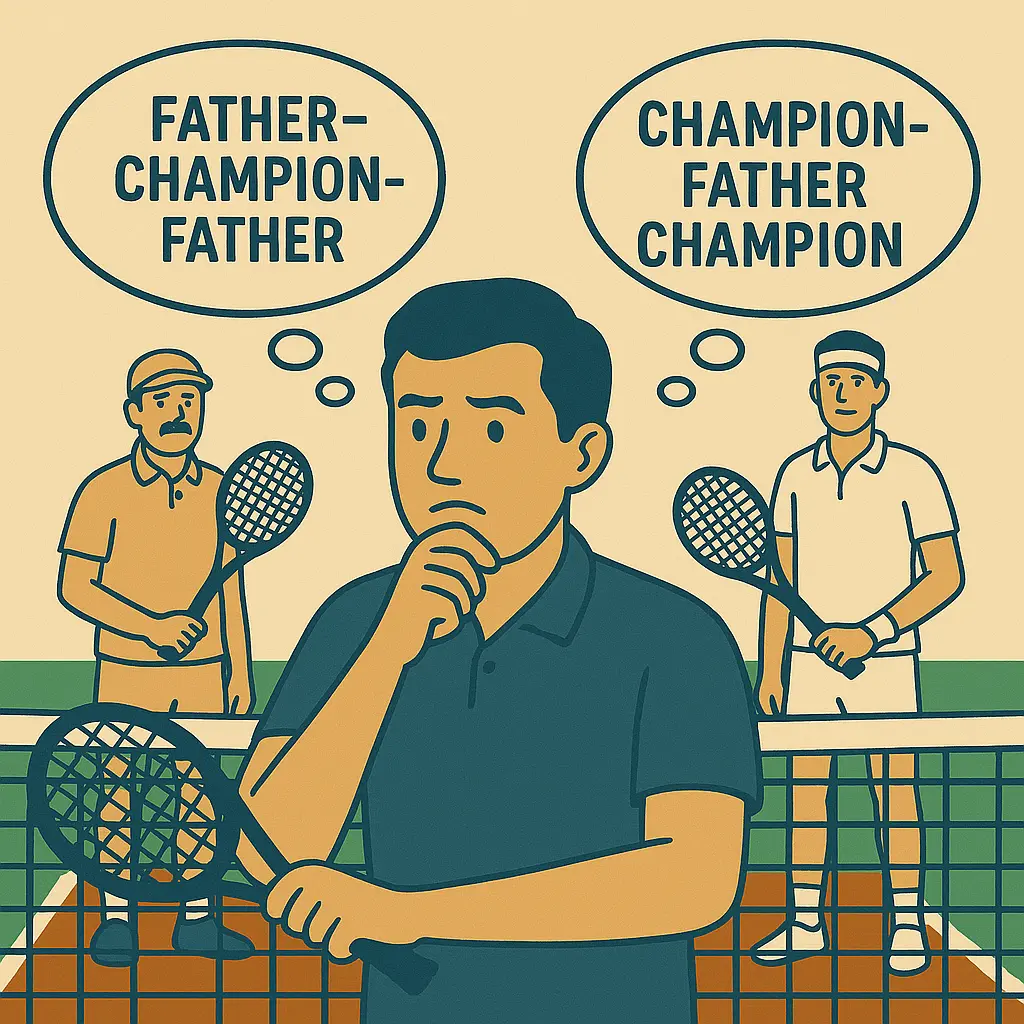Successive Wins

Problem
To encourage Elmer’s promising tennis career, his father offers him a reward if he wins at least two consecutive sets in a three-set series. The sets alternate between two opponents: the father, who is easier to defeat, and the club champion, who is a tougher opponent.
Elmer has two choices for the order in which he wants to play against them:
- Father–Champion–Father: Elmer first plays a set against his father, then against the club champion, and finally another set against his father.
- Champion–Father–Champion: Elmer first plays a set against the club champion, then against his father, and finally another set against the club champion.
Given that the club champion is notably more difficult to beat than his father, which sequence should Elmer choose to maximize his chances of winning at least two consecutive sets?
Solution:
The optimal choice is Series 2 (Champion–Father–Champion).
We will give two proofs:
1. Proof by equivalent reformulation of the problem
First note that winning at least once against both, the father and the champion, is in both series an equivalent condition to Elmer winning 2 consecutive sets.
Lemma: In both series Elmer achieves two consecutive wins, if, and only if, he wins at least one set against each opponent (father and champion).
In both series Elmer plays each oppenent once and then gets another chance to beat one of the opponents:
In series 1. he gets another chance to beat the father.
In series 2. he gets another chance to beat the champion.
So the choice between series 1. and series 2. is actually the choice of which player Elmar wants to get another chance at beating, i.e. the choice of which opponent Elmer prefers to face twice.
Formulated this way, it seems intuitively evident that Elmer should choose series 2, because getting another chance at beating the stronger player seems to lead to a bigger chance to win against both than getting another chance at beating the weaker player.
We can also substantiate this intuition through explicit calculation:
2. Formal Probability Analysis:
Let’s formally verify this conclusion by finding arithmetic expressions for the winning probabilities in each series and then comparing them:
Let
- $f$ be the probability that Elmer wins against his father
- $c$ be the robability that Elmer wins against the champion
The condition that the champion is the stronger opponent translates to $c < f$.
There are $2^3=8$ possible outcomes of the plays. Let $x_1 x_2 x_3 \in \{0,1\}^3$ , where $x_i=0$ means, that Elmar lost the $i$-th set and $x_i=1$, that Elmar won the $i$-th set.
Series 1 (Father–Champion–Father):
The favorable outcomes (where Elmer wins 2 consecutive sets) for this series are:
- $110$, probability = $fc(1-f)$
- $011$, probability = $(1-f)cf$
- $111$, probability = $fcf$
Thus, the total probability is: $$ fc(1-f) + (1-f)cf + fcf = fc[(1-f) + (1-f) + f] = fc(2-f) $$
Series 2 (Champion–Father–Champion):
The favorable outcomes for this series are:
- $110$, probability = $cf(1-c)$
- $011$, probability = $(1-c)fc$
- $111$, probability = $cfc$
Thus, the total probability is: $$ cf(1-c) + (1-c)fc + cfc = cf[(1-c) + (1-c) + c] = cf(2-c) $$
Comparing the two series:
Since $f > c$ , we have $2 - c > 2 - f$. Hence: $$ cf(2-c) > fc(2-f) $$
Thus, Series 2 (Champion–Father–Champion) offers Elmer a higher probability of winning at least two consecutive sets.